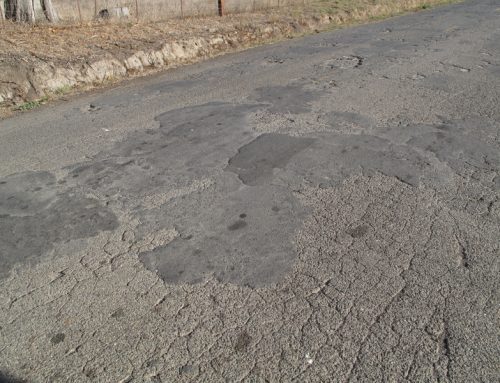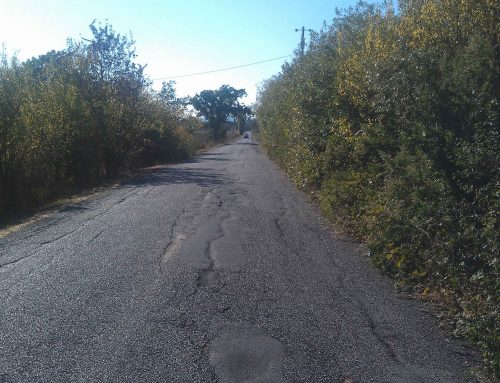A Santa Rosa assemblyman is pushing a bill that would set rules for how police run DUI/license checkpoints, particularly targeting the impoundment of vehicles and being more specific about where the checkpoints will be.
But the bill is generating some waves in the state’s law enforcement community.
Assemblyman Michael Allen, a Democrat, said he was approached by social action committees from local churches about the fear Latinos have at the checkpoints and the possible impoundment of their cars for not having licenses. He said he did some research and found police around the state were inconsistent in their checkpoint policies and some were using checkpoints to generate income for their cities.
As a result, he said, he introduced Assembly Bill 1389 to impose uniform regulations for the checkpoints. U.S. Supreme Court and California Supreme Court rulings now generally govern how checkpoints work.
A key element of the bill, which earlier this month passed the Assembly Transportation Committee 11-3 and now goes to the full Assembly, would be to change the law covering impoundment of cars at checkpoints.
Now, state law allows a police officer to immediately arrest a driver and impound her/her car if the driver doesn’t have a driver’s license or is driving with a suspended or invalid license. Allen’s bill would forbid police from impounding cars, except in very limited cases, such as the car was used to commit a crime or contains evidence of a crime.
Instead of impoundment, an officer under Allen’s bill would have to allow the driver to turn the car over to a friend, relative, neighbor or someone else with a valid license; allow the driver to park the car in a safe place for a licensed driver to come; or permit the officer “to readily and lawfully remove the vehicle to a place that does not impede traffic or threaten public safety.” If none of these can be achieved, then the bill allows the car to be impounded.
Allen said his bill reaffirms what courts have ruled, that “driving without a license should not be a trigger to the loss of property.”
Another key provision of Allen’s bill would require police to give the public at least 48 hours notice of the checkpoint’s “general location.” Now police typically give warnings of upcoming checkpoint operations but are not required to specify the locations. An earlier version of the bill had required notification of the actual location.
Allen aide David Miller said Allen changed the wording to “general location” at the request of the CHP.
A provision for police to give drivers a chance to avoid the checkpoint was deleted from the bill during Assembly committee action.
Allen said it’s been 20 years or so since he went through a DUI checkpoint, fnding it “an annoyance” but nothing terrible.
Alicia Roman, a Santa Rosa attorney who often monitors checkpoints, called the Allen bill “a good start” that leaves no room for different interpretations of the checkpoint-related court rulings but it “needs more work.” She said she’d like to see the provision allowing drivers to avoid checkpoints be reinstated.
Santa Rosa Police Sgt. Rich Celli and Petaluma Police Sgt. Ken Savano, both who frequently oversee DUI/license checkpoints in their cities, declined to comment on Allen’s bill, but both said they follow case law and state rules for the checkpoints.
Impoundment of cars has been quite controversial in Sonoma County, with some groups saying it unfairly targets illegal immigrants who are prohibited from having driver’s licenses.
In February, Santa Rosa and Petaluma police and the Sheriff’s Office said they would give unlicensed drivers stopped for the first time a choice of parking their car in a safe spot, releasing it to a licensed driver or having it towed. But for unlicensed drivers stopped before and for those with suspended licenses, their cars still we be impounded.
Allen’s bill doesn’t sit well with Dan Fox, who works for the California District Attorneys Association as a traffic safety resource prosecutor and who serves as an adviser to the state Office of Traffic Safety, which provides grant money to police departments for checkpoints.
He faulted the bill on several accounts, including:
–The bill allows officers to “look for signs of intoxication, such as alcohol on the breath, slurred speech and glassy or bloodshot eyes.” Fox said this wording, if it becomes law, may allow drug-impaired drivers to get through or, if arrested, to successfully argue that their arrest violated the law, which specified alcohol-related symptoms. Allen said that’s not the intent of his bill.
–The bill addresses sobriety checkpoints, which Fox said could prohibit police from conducting license, registration, warrant and probation checks of drivers. “By omission, it seems to forbid this,” he said.
–The impoundment provision. Fox said the bill’s too vague on how long police are supposed to wait for a licensed driver to arrive to take possession of the suspect’s car. And he scoffed at having police park a suspect’s car — “turning police officers into uniformed valets.”
Allen said no one has testified in opposition to his bill.
To read the bill, as it was amended on May 19, CLICK HERE.
To see past versions of the bill, CLICK HERE and click on versions listed under “Bill Text.”



